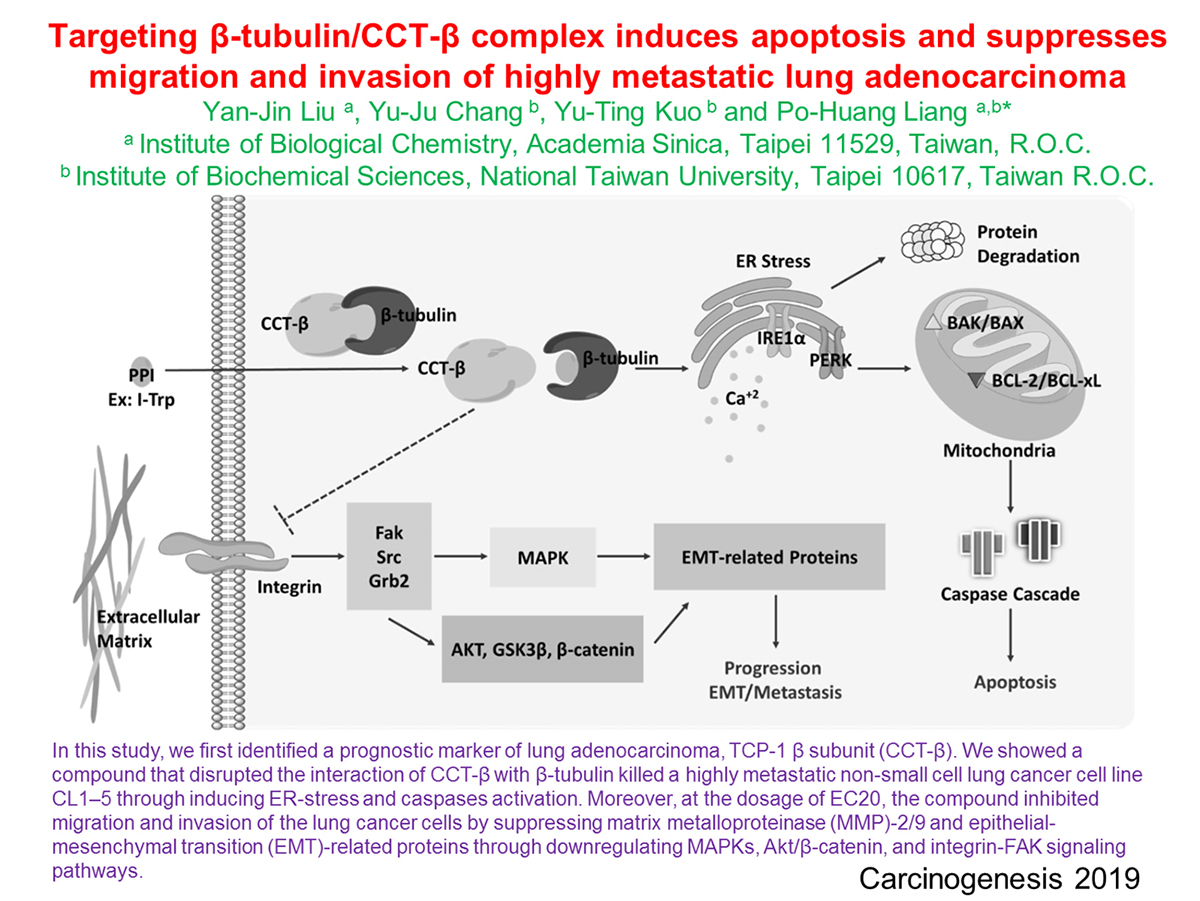
 中央研究院 生物化學研究所
中央研究院 生物化學研究所
Metastasis, the movement of cancer cells from one site to another, is responsible for the highest number of cancer deaths, especially in lung cancer patients. In this study, we first identified a prognostic marker of lung adenocarcinoma, TCP-1 β subunit (chaperonin-containing TCP-1β; CCT-β). We showed a compound that disrupted the interaction of CCT-β with β-tubulin killed a highly metastatic non-small cell lung cancer cell line CL1-5 through inducing Endoplasmic reticulum stress and caspases activation. Moreover, at the dosage of EC20, the compound inhibited migration and invasion of the lung cancer cells by suppressing matrix metalloproteinase (MMP)-2/9 and epithelial–mesenchymal transition (EMT)-related proteins through downregulating mitogen-activated protein kinases (MAPKs), Akt/β-catenin and integrin–focal adhesion kinase signaling pathways. Unlike the anticancer drugs, such as Taxol, that target the adenosine triphosphate site of β-tubulin, this study reveals a therapeutic target, β-tubulin/CCT-β complex, for metastatic human lung adenocarcinoma.
The study demonstrated CCT-β as a prognostic marker. Targeting β-tubulin/CCT-β complex caused apoptosis and inhibited invasion/migration of CCT-β overexpressed, highly metastatic lung adenocarcinoma.
